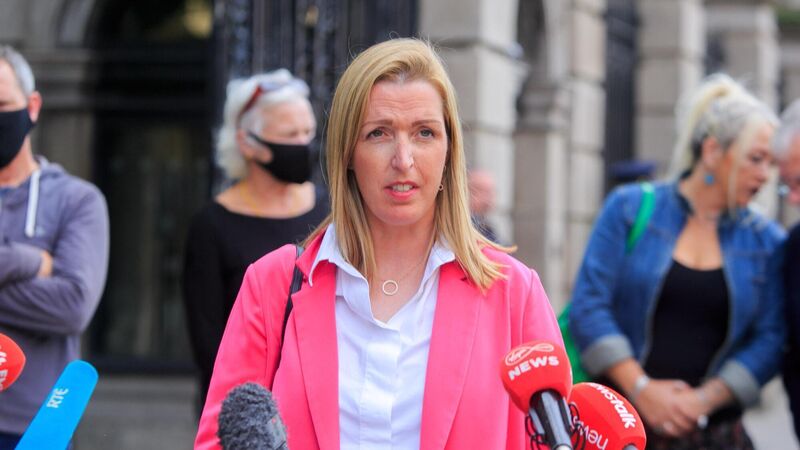Daniel McConnell: Vicky Phelan fought to allow terminally ill people to die with dignity

Vicky Phelan during the launch of Dying with Dignity Bill 2020. Picture:Gareth Chaney/Collins
In July 2020, the recently retired Independent Alliance minister John Halligan rang me offering me an opinion piece about his Dying with Dignity Bill which had lapsed with the change of government a month before.
Spurred on by the 2013 Marie Fleming case, Halligan had sought to get legislation passed to allow terminally ill people end their lives and give them a dignified death.











